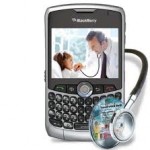 Smartphones are an increasingly important part of our lives. A study released earlier this year showed that the majority of us keep our smartphones no further than 5 feet from us at all times. What’s more, 40% of respondents said they check their phone every 10 minutes or so.
Smartphones are an increasingly important part of our lives. A study released earlier this year showed that the majority of us keep our smartphones no further than 5 feet from us at all times. What’s more, 40% of respondents said they check their phone every 10 minutes or so.
It all adds up to a whole lot of data being generated, with many apps using this data to power the services they offer to users. The flipside of course is that such data can also represent significant privacy concerns, with many users largely unaware of how implicating their phones are in terms of the data they provide.
An interesting new example of this dilemma in action is emerging in the healthcare field. Earlier this year the Trifecta X-Prize launched to look for a mobile device that could monitor health signals and report them back to the persons physician. Whilst that competition is still open, a number of apps are doing a reasonable, if less comprehensive, imitation.
“(The trend) just seems to be exploding,” said Seth S. Martin, a Pollin cardiovascular prevention fellow at Johns Hopkins Hospital in Baltimore. “With the widespread use now of smartphones, it’s a really exciting opportunity to help people live healthier lives.”
Ginger.io is probably the most prominent example of this trend in action. The app is currently invitation only, but is being tested in several large hospitals before the expected expansion to the wider public.
At the moment the app deals with a relatively small number of diseases, such as diabetes, and mines the data generated by your smartphone usage to determine lifestyle trends that it can then utilise to provide you with health insights and alerts.
“It forms an automated diary of your life,” said Anmol Madan, co-founder and CEO of Ginger.io. “The idea is to provide support to patients and families.”
The data generated by an individuals normal phone usage forms part of the general data collection undertaken by the app. They then harvest more specific data courtesy of condition-specific surveys about their symptoms and general well-being.
Where the contention lies is that this data is then shared with the individuals physician, who can then monitor the data for any unusual patterns. Quite what those patterns might be of course is in itself up for debate, but the app believes that it will allow for faster and better interventions.
It’s certainly an interesting concept but does raise some obvious questions. Whilst I can see the value in obtaining information specific to a persons condition, I do have to question the relevance of more general data obtained from our phone usage. It certainly doesn’t seem crucial enough to warrant the privacy concerns that come along with it.
What are your thoughts? Is this the future or an unwanted invasion of privacy?
Like you, I can see the benefits of sharing medical information, but the rest of my phone data? Thanks but no thanks.
I wonder how many people would be aware what they're signing up for?